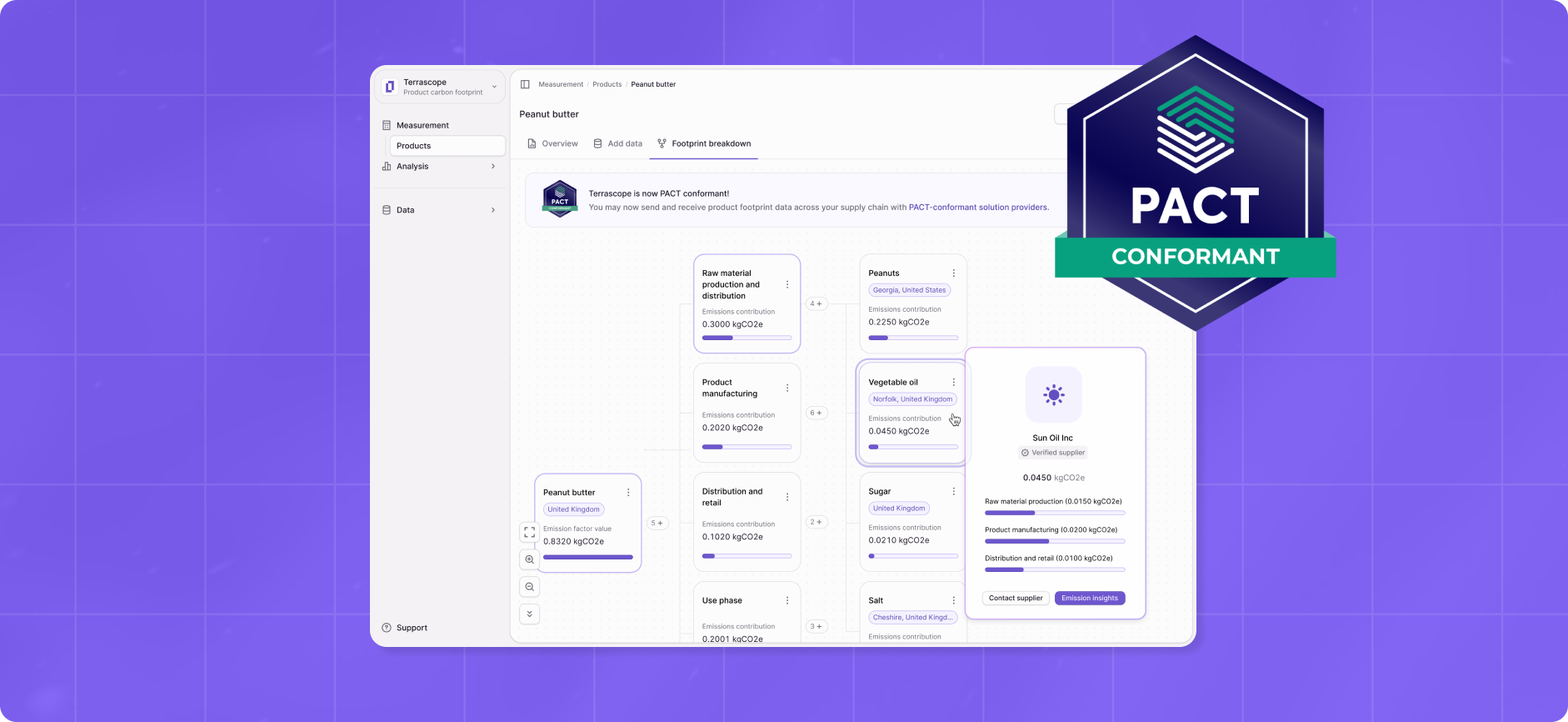Summary
- Carbon accounting will enable emissions tracking - enabling businesses to identify sources, set reduction targets, and track progress towards sustainability goals in the effort to combat climate change.
- Accounting for carbon will help companies comply with tightening regulations, build consumer trust, attract investments, and achieve cost savings.
- Enterprises should focus on accurate baseline setting, identifying emission hotspots, working closely with partners and suppliers, and continuously tracking progress to achieve meaningful reductions in their carbon footprint.
Introduction
Carbon accounting is an essential process for measuring and managing greenhouse gas emissions, providing businesses with insights to make informed decisions for a sustainable future. The emissions produced directly or indirectly by an entity are vital in understanding the environmental impact of human activity. The significance of carbon accounting lies in its ability to support efforts to mitigate climate change by identifying emission sources, setting reduction targets, and monitoring progress towards net zero.
Innovations in technology, evolving regulations, and a growing global awareness of climate change are poised to reshape the landscape of carbon accounting in the years to come. In this blog, we will explore how this critical discipline will continue to play a central role in the global journey towards decarbonisation.
The history of carbon accounting
Carbon accounting has its roots in the late 20th century when concerns about climate change and its potential impacts started to gain recognition. Early developments in carbon accounting were primarily driven by scientific research and the need to quantify greenhouse gas emissions. As awareness grew, businesses and organisations also recognized the importance of understanding and managing their carbon footprints. The first corporate carbon accounting efforts emerged in the late 1980s and early 1990s, with pioneering companies seeking to track and report their emissions voluntarily.
The evolution of carbon accounting saw the establishment of standard frameworks and protocols to ensure consistency and comparability of data. Notably, the Greenhouse Gas Protocol (GHG Protocol) developed by the World Resources Institute (WRI) and the World Business Council for Sustainable Development (WBCSD) in the late 1990s provided guidelines for calculating and reporting greenhouse gas emissions. In the early 2000s, carbon accounting gained further momentum with the introduction of international standards like ISO 14064, which specified principles and requirements for greenhouse gas inventories and verification.
Today, carbon accounting is gaining even more momentum as a mainstream practice across industries and governments. Many countries have implemented regulations that mandate or incentivise companies to report their carbon emissions, fostering transparency and accountability. The landscape of carbon accounting continues to evolve, driven by advancements in technology, global collaborations, and an increased focus on sustainability.
The current state of carbon accounting
The current state of carbon accounting reflects a growing awareness and sense of urgency in addressing climate change. Governments, businesses, and organisations worldwide are increasingly embracing carbon accounting as a fundamental tool in their sustainability strategies, as they recognise the dire consequences of unchecked greenhouse gas emissions. However, despite significant progress, there is much more room for improvement. Challenges such as data accuracy, standardisation of reporting methodologies, and the integration of emissions data across global supply chains remain.
The BCG Carbon Emissions Survey Report published as of September 2024 states that not all carbon footprints are of equal quality. Across nearly 2,000 companies, only 9% reported across Scopes 1, 2, and 3. The absence of granular data exacerbates uncertainty, creating reputation risk and making it harder to identify impactful decarbonisation initiatives.
Another key challenge is the lack of progress on decarbonisation targets. While several companies have set ambitious targets to achieve net-zero emissions, signalling a shift towards more sustainable business practices, implementation remains ineffective. Reports have noted that limited in-house skills, sluggish data collection, manual processes, vague strategies, and organisational silos all impede progress on decarbonisation.
Furthermore, countries vary significantly in their target-setting status, as outlined in the very Net Zero Stocktake 2024, which found that several BRICS countries have led in setting net zero targets, alongside companies in Asia. For instance, in the past eighteen months, the count of companies setting net zero targets rose from 118 to 184 in Japan, 27 to 48 in China, 22 to 41 in South Korea, 20 to 29 in India, 12 to 26 in Taiwan, and 5 to 11 in Thailand.
Many companies across Western countries have flagged in their reduction planning, with almost 84% not setting an emission reduction target at all, and the ones who do are yet to streamline transparent reporting of their emissions data. Many smaller businesses and regions are also just beginning to grasp the importance of carbon accounting and will require additional support and resources to participate fully.
Carbon accounting trends
The current state of carbon accounting practices reflects a growing emphasis on sustainability and corporate responsibility. Companies worldwide are taking significant steps towards understanding and mitigating their environmental impact. Voluntary sustainability reporting has become more prevalent, with businesses disclosing their carbon emissions data as part of their commitment to environmental stewardship. This transparency is not only driven by the desire to demonstrate sustainability efforts but also by increasing demands from investors and consumers for responsible business practices.
Global trends in carbon reporting show a shift towards carbon neutrality and the adoption of emission reduction targets. This trend is fueled by governments worldwide who are increasingly integrating carbon accounting into regulatory frameworks. Mandatory reporting requirements and emission reduction mandates are becoming more common, driving businesses to take carbon accounting seriously.
Looking ahead, the future of carbon accounting appears promising but also challenging. The push for standardised reporting methodologies and data accuracy will intensify. Moreover, carbon accounting is likely to extend beyond direct emissions to encompass indirect emissions associated with the supply chain and product lifecycle. This expansion will demand increased collaboration and data sharing among organisations and their partners.
As technology advances, the use of artificial intelligence and machine learning in carbon accounting will grow, allowing for more sophisticated data analysis and meaningful climate action. These advancements will enable better-informed decision-making and more effective emission reduction strategies.
The future of carbon accounting and technology
The future of carbon accounting is poised for transformation, driven by advancements in technology that offer businesses opportunities to tackle climate change more effectively. The integration of innovative technologies into carbon accounting practices holds the key to enhancing accuracy, transparency, and efficiency in decarbonisation.
One of the most promising areas of development is in carbon measurement and monitoring technologies such as Terrascope. The end-to-end decarbonisation platform supports seamless data ingestion with advanced data processing methodologies to handle diverse data formats and deliver 5 times faster processing than manual methods. By combining AI-assisted carbon measurement and management with deep industry and sustainability expertise, technologies like Terrascope help solve the data management, emissions reduction planning, and implementation challenges that large enterprises face to decarbonise their operations and complex supply chains.
The platform combines accurate Corporate Carbon Footprinting (CCF) with a focus on Scope 3 emissions, and robust Product Carbon Footprinting (PCF), offering valuable insights into emission sources, enabling businesses to identify hotspots and implement targeted reduction strategies.
As the urgency to combat climate change intensifies, carbon accounting will become an integral part of sustainability strategies for businesses, governments, and institutions. The seamless integration of technology into carbon accounting practices will pave the way for more effective climate action, empowering stakeholders to make informed decisions, and drive the transition to a low-carbon future. Moreover, the future of carbon accounting will likely witness increased collaboration among businesses and governments. This collaboration will enhance data comparability and facilitate the exchange of best practices in emission reduction.
Conclusion
As the world faces the challenges of climate change, carbon accounting plays a pivotal role in guiding sustainable practices. The future of carbon accounting is witnessing a growing commitment from various stakeholders to address climate change effectively. The convergence of corporate commitments, government regulations, investor demands, and public awareness is reshaping the landscape of carbon accounting. By embracing technology, collaboration, and transparent reporting, the world can progress towards a more sustainable future and successfully mitigate the impacts of climate change.
Frequently Asked Questions (FAQs)
1. Why is carbon accounting important?
Carbon accounting is crucial because it helps organisations understand their carbon footprint, enabling them to identify emission sources and set reduction targets. It plays a significant role in mitigating climate change by promoting sustainable practices and guiding the transition to a low-carbon economy.
2. How can technology improve carbon accounting?
Innovations such as advanced sensors, AI, and machine learning can enhance data accuracy and analysis in carbon accounting. Additionally, blockchain applications can ensure transparency and traceability of emissions data, reducing the risk of fraudulent reporting.
3. How does carbon accounting help in achieving sustainability goals?
Carbon accounting provides organisations with essential information to make informed decisions in reducing their carbon footprint. By measuring and managing emissions, businesses can implement effective strategies to achieve sustainability targets and contribute to global climate goals.



